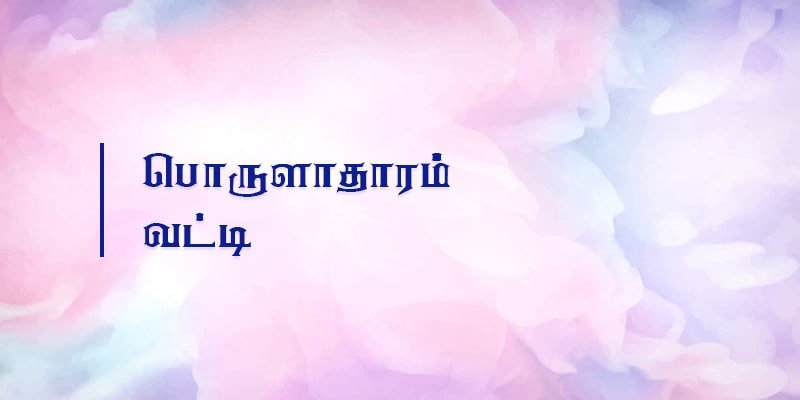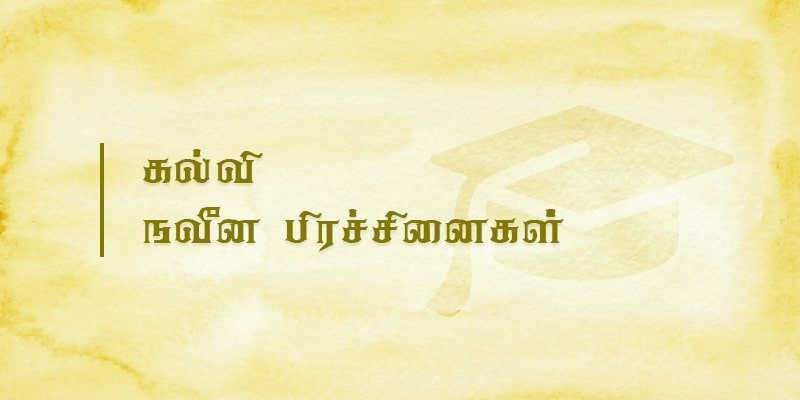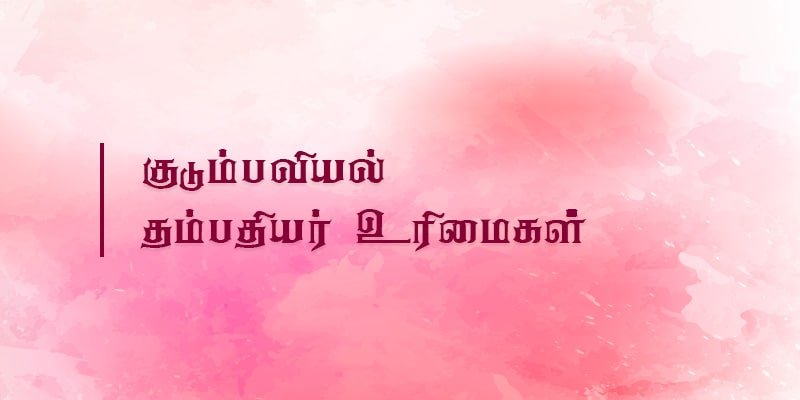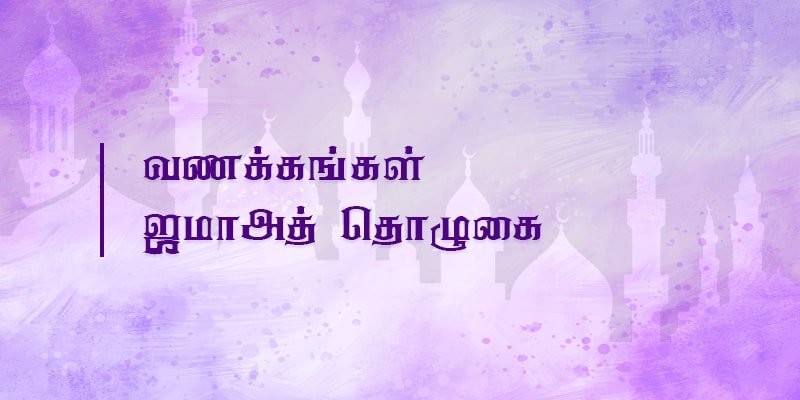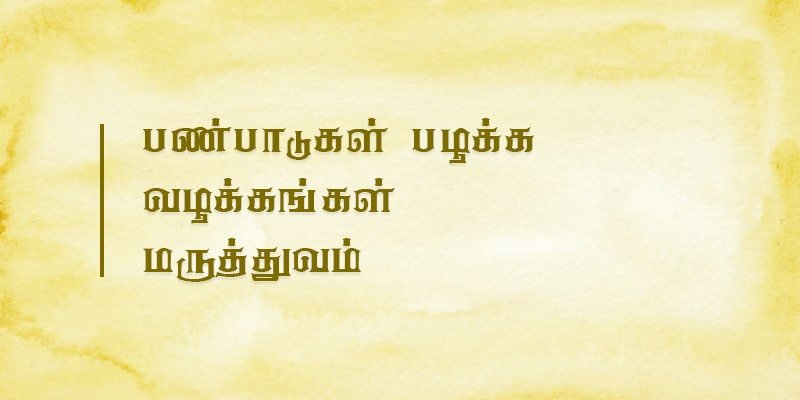472. Women not to veil their faces.
These two verses (24:31, 33:59) of the Quran talk about the limitations for women in dressing up themselves.
Verse 33:59 of the Quran talks of the need for muslim women to wear a top over-cloak (Jilbab). People who support the view of women wearing veils over their face treat this verse as important evidence to prove their point of view. The argument they put forth calling the Jilbab as a veil that covers the face forms the basis of this debate.
Jilbab is described in dictionaries as a piece of cloth bigger in size than a kimar worn on the head of a woman.
And is also described as a piece of cloak wrapped around by a person.
A dress in the likes of a dhoti, that can be wrapped around the whole body etc.,
There are many descriptions found for this word,
People who insist on women wearing a veil covering their face misunderstand the meaning of this word as a covering that is used to veil their entire body.
When there are different meanings for a word, it is wise for a person to use it in the appropriate place as per context required, and not use the meaning hard and fast as given in the dictionaries. They have ignored such basic concepts in this case.
In this (33:59) verse of the Quran, the word jilbab cannot be used to mean as a cloth covering the entire body, but as a veil to be worn from the head in such a way it covers the top part of the body. The verse itself guides us to conceive the meaning in his way.
The Quran in this verse says ‘O Prophet, enjoin your wives and your daughters and the believing women, to draw a part of their outer coverings around them. It is likelier that they will be recognised and not molested. Allah is Most Forgiving, Most Merciful
The word jilbab is seen in this verse used to imply two aspects: one, it says the women will not be subjected to all kinds of harassment. ,
Another aspect of wearing a jilbab is the exhibition of their identity.
Jilbab, the outer covering cloak for women needs to be in a position to avoid harassment to women and also to exhibit the wearer’s identity, are the objectives of wearing the Jilbab.
In most cases the reason for women being harassed is the exposition of the upper part of their body. And much of the harassment could be avoided when an over cloak is worn above their dress.
At the same an overveil should not be worn covering the face because once the face is covered the identity is hidden, resulting against the objective of the verses of the Quran.
This verse of the Quran talks of the dress of women should to be in the manner they can be identified by their face, hence keeping the face open is a necessity in order to identify a person.
Verse 24:31 of the Quran indicates the same meaning the women need to cover their upper part of their body cover with a cloak.
To know the meaning of the word jilbab we need to take the help of some hadiths in which we find the usage of the word.
Ummu Athiya (RA) said;
We were tasked with dispatching menstruating and just puberty attained girls to places of worship to attend their congregation salat during the two Islamic festival days. Thus fulfilling the obligation of women attending to festivities other than worshipping, as worshipping was prohibited for women undergoing their monthly periods. It was forbidden by Prophet Muhammad, who asked the menstruating women to stay from places of worship at the time of their periods, a girl at the time called out to Prophet Muhammad telling him that she and some of her accomplices do not have jilbabs to cover themselves, to which Prophet Muhmmad replied asking them to borrow from others. Book:Bukhari 351
The word jilbab mentioned in verse 33:59 of the Quran is used in this hadith. It is being made known here that wearing a Jilbab is imperative on the part of women while performing worship, and others should help ones that do not have jilbabs.
From the incidents mentioned in the above hadith we come to understand the necessity of jilbabs to participate in worship, and that even after wearing a jilbab their faces were exposed.
I was accompanying Prophet Muhmmad in the festival day salat on a particular day, when he started leading the salat without Azan and Ikamah and before sermonizing, and after the salat was over, leaning on Bilal (RA) he sermonized about holding on to fear in God, and following the guidance of his messenger. He also advised and reminded the people to fear God and follow the footsteps of his messenger. Then he left the spot and walked towards the women gathered there and reminded them of the same. He exhorted them to give in charity and told them they will form the major part of the fuel of hell, at this a women with dark colored cheeks queried Prophet Muhammad the reason for being so. When he replied to her by saying you women are finding more and more faults with your husbands and are being thankless to them. At this the women there started removing their gold ornaments and offered the same to the collector of donations Bilal (RA)
Book: Muslim 1607
While referring to the woman who questioned Prophet Muhmmad, narrator Jabir (RA) mentions her as a dark-complexioned person indicating she was not covering her face, and nothing took place there to suggest something untoward had happened because of the face being unveiled and neither did Prophet Muhammad reprimand the woman for having let her face uncovered. We come to understand from this incident, the woman did not conceal her face in public. Had veiling the face of women been imperative, the great Prophet of Islam would have immediately reprimanded the women for not obeying the commandments of Allah have This confirms the fact there is no need for women to conceal their faces in the presence of alien men.
Had the meaning of Jilbab been a piece of cloak covering the entire face of a women and the head altogether, there is no chance Prophet Muhammad would have found a lady appearing with her face uncovered in his presence. And it could not be said as the woman was not wearing a jilbab because Prophet Muhammad had already insisted on women wearing the same when they arrive to preform celebratory salat. The Prophet would have questioned if they were not wearing jilbab. If a man could identify a woman with a dark-complexioned cheek, it means Jilbab is a cloak that covers, head and the chest of a woman and the face is confirmed here.
Prophet Muhammad never commanded women to veil their face nor encouraged them. There are many evidences available to prove Prophet Muhammad never insisted on women wearing Jilbabs and never reprimanded those women who did not wear one. Ayesha (RA) said, the believing women covered themselves with woolen cloak would take part in the early morning worship with Prophet Muhammad. And at the end of the worship would return to their homes, because of the darkness no one could recognize them. Book: Bukhari 578.
The women who attended the early morning worship according to Ayesha (RA) could not be recognised because of darkness. It speaks, the truth that the women were not wearing the veil over their face.
Zainab (RA) the wife of Abdullah bin Masood said: When I was in the Masjid, the prophet called out to women asking them to donate some of their ornaments as charity. I was at that time taking care of the expenses of a few of the orphans as well as that of my husband Abdullah (RA), hence I requested my husband to enquire with Prophet Muhammad whether what I was doing at that time comes under the ambit of charity. My husband asked me to get the clarification by my self from Prophet Muhammad.
Hence I went to the house of Prophet Muhammad, where I found another Medinan woman with the same objective. At that time Bilal (RA) arrived at the place, I requested Bilal (RA) to know from Prophet Muhammad whether my act of providing for my husband and the orphans constitute charity? And at the same time requested not to reveal our identity. Bilal (RA) immediately went inside and put the question to the prophet, who in turn asked Bilal (RA) the identity of ladies who posed the question, to which Bilal (RA) replied saying it was Zainab, the prophet asked him which Zainab? Bilal (RA) replied by saying it is the wife of Abdullah, Immediately the prophet said ‘Yes Zainab gets double fold goodness for her act of providing comfort to a close relative and another for fulfilling the obligation of charity.
Book : Bukhari 1466
The two women who had come to Prophet Muhammad for a clarification for a matter on religious grounds requested Bilal (RA) not to reveal their identity to Prophet Muhammad, yet Bilal (RA) could specifically identify them when the prophet asked them who they were, This translates to mean they had not covered their face with veil. Had the two women been wearing veils over their face they could have hidden their identity from Bilal (RA), since they were not wearing one made Bilal (RA) recognize who they were. And because Bilal (RA) already knew their identity did they request him not to reveal the same to Prophet Muhammad.
This incident substantiates the fact that women at that time did not veil their faces even at that period of time.
Abdllah Ibn Umar (RA) says:
During the time of Prophet Muhammad, both men and women used to perform ablution at the same location.
Book: Bukhari193
If both men and women used to perform ablution at the same place there is no chance that they could remain without seeing each other’s face. There is no way one would be able to wash their face with a veil over their face.
Sahl bin Sa-ad said:
A woman came to Prophet Muhmmad and said Oh! Messenger of God, I have come here to offer myself as a gift to you, the prophet lifted up his gaze towards her face and lowered it down and hung his head down. On understanding the prophet having not made any decision regarding her offer, she quietly sat down. At this one of the comrades of Prophet Muhmmad stood up and addressed him saying Oh! Messenger of God, If you do not wish to get married to her let me marry her. (a shortened version of a long hadith).
Book: Bukhari 5030
From this incident we can clearly understand the woman had appeared in the presence of a great prophet without a veil over her face, and is one of the reasons he looks into her face and as well she is seen by all others.
A comrade of Prophet Muhammad asks her hand in marriage only after he has seen her face and gets attracted by it, and because Prophet Muhammad has laid down a condition, a man should see the face of the women he is about to marry. Had there been a law prohibiting women from appearing in public and that too in the presence of Prophet Muhammad, no one would dare violate it, nor the prophet would allow it.
Anas bin Malik once asked a woman of his household whether she was aware of a particular lady. To that the lady replied in the affirmative. Anas bin Malik said, once she was sobbing at a grave and Prophet Muhammad had to pass through her, and while crossing her, he said ‘fear God and maintain patience’, to this the woman replied ‘stay away from me if you had undergone the miseries I underwent, you would not say such things’.
Prophet Muhamammad crossed the place without uttering a word in response. At that time a man who happened to pass through the same spot asked the lady, as to what the Prophet of God spoke to her about, the lady replied to him saying she was unaware about the person, to which the man told her that he is the messenger of God. On this the lady went to the house of the messenger of God, and not finding any security guard called out ‘Oh! Messenger of God, I swear in the name of Almighty I was unaware of who you are, to that the messenger of Almighty God said ‘Patience is the first step towards maintaining one’s self’ while being afflicted by sorrow.
Book: Bukhari 7154
The incident of Prophet Muhmmad reprimanding a women sobbing at a grave took place during the time of Prophet Muhammad. And Anas bin Malick asks a woman of his household at a later date if she was aware of a particular lady involved in that incident. This confirms the fact, the woman who was a part of the incident was also seen by Anas (RA). And the woman who was reprimanded by Prophet Muhammad was also seen by Anas (RA).
Had the woman found sobbing at the grave veiled her face at that time, Anas (RA) would not have been aware of her identity. Anas (RA) has already seen her sobbing at the grave and even after the time of the prophet he has seen her is what we come to understand here.
Thereafter women will not be lawful for you, and it will not be lawful for you to take other wives in place of them, even though their beauty might please you,unless they are those whom your right hand owns. Allah is watchful over everything 33 : 52
In this verse 33:52 of the Quran the Almighty commands Prophet Muhammad should not marry any woman hence forth even if he finds their faces attractive. If there was already a law prohibiting the exposure of face of women, the condition in the Quran that ‘even if the faces are found to be attractive to Prophet Muhammad’ become meaning less.
We can come to understand from this verse, the faces of women at the time of Pophet Muhammad were not veiled.
Jarir bin Abdillah (RA) said: I asked Prophet Muhammad about our random looks fallin on women, the prophet said at such times to lower our gaze.
Book: Muslim 4363
There is no need to lower one’s gaze if the faces of women are veiled.
Abu Sayeed Al Qudri said: Prophet Muhammad said avoid sitting on the footpaths to form gatherings. People replied by saying, they did not have any other alternative, than to form gatherings by the footpaths, to that Prophet Muhammad told them to grant due rights to the footpaths. When asked about the rights of the footpaths, he said it is the lowering of the gazes when an alien women criss crosses the path, and not creating hindrances the people using the footpath, and accepting the greetings of the people passing by, exhorting good, and forbidding evil.
Book:Bukhari 2465
From these evidences it can be seen, during the time of Prophet Muhammad the women were not veiling the faces in public.Anas bin Malick said: There was an orphan girl child with my mother Ummu Sulaim. Once Prophet Muhammad on seeing her queried ‘Is that you’ you have grown up to be a big girl. Let not you grow old. On hearing this the orphan child ran crying towards Umm Sulaim, and explained the reason for her crying, as the prophet's wish for her not to grow old.
Immediately Umm Sulaim wrapping a cloak around her head started towards the house of Prophet Muhammad to meet him. The Prophet Muhammad on seeing her asked ‘Oh! Umm Sulaim what happened to you? (Shortened version)
Book :Muslim 5073
Prophet Muhammad on seeing Umm Sulaim with a Kimar queries why is she looking distressed. This kind of question can be addressed to a person only when the face is exposed. From this incident we come to know the prophet could recognize her (Umm Sulaim) since she was not wearing a veil over her face.
Adahu bin Abi Rabah Rahmatullah says: Ibnu Abbas (RA) once asked me ‘Can I show you a woman of Paradise? I said ‘yes’, and he pointed out to a blackwoman and said it’s her, because she used to often fall unconscious due to fits at an awkward position with her clothes thrown away revealing her body. She requested the prophet to pray for her, the kind of an incident that does not recur. To that, Prophet Muhammad told her to maintain patience and bear such happenings for a better reward in Paradise, if she still insists that on me praying for her relief in this world, I am ready to do that. The lady preferred waiting with patience for that day in the hereafter life, and requested Prophet Muhammad to pray for her clothing not to be displaced whenever she falls unconscious. And the prophet prayed for her likewise.
....Adhau bin Abira bah said, I had seen Ummu Sufair, the tall black girl leaning on the Kaaba’s curtain.
Book: Bukhari 565
Ibnu Abbas (RA) has seen Ummu Sufair during the days of Prophet Muhammad, as well during the time of Adhau bin Abi Rabah when she was introduced by Ibnu Abbas.
Since Ibnu Abbas has seen Umm Sufair in the days of Prophet Muhammad, could he identify her, and introduced her to Adhau bin Abi Rabah. Had Umm Sufair veiled her face during the days of Prophet, Ibn Abbas could not have been able to identify and introduce her Adhau bin Abi Rabah after the days of Prophet Muhammad.
Had Umm Sufair veiled her face Ibn Abbas (RA) could not have called her as a black woman.
Hence we can understand from all these incidents, that Umm Sufair was not wearing a face veil either.
Later at a time when Umm Sufair was leaning against the wall of Kaaba, she was identified by Adau bin Abirabaah.
From this we, find the women quoted by Prophet Muhammad as dweller of paradise did not cover her face during the time of Prophet Muhammad nor after that. This is direct evidence to prove the women comrades of Prophet Muhammad did not cover their faces with a veil.
The Quran 24:61 There is not upon the blind [any] constraint nor upon the lame constraint nor upon the ill constraint nor upon yourselves when you eat from your [own] houses or the houses of your fathers or the houses of your mothers or the houses of your brothers or the houses of your sisters or the houses of your father's brothers or the houses of your father's sisters or the houses of your mother's brothers or the houses of your mother's sisters or [from houses] whose keys you possess or [from the house] of your friend. There is no blame upon you whether you eat together or separately. But when you enter houses, give greetings of peace upon each other - a greeting from Allah , blessed and good. Thus does Allah make clear to you the verses [of ordinance] that you may understand.
This verse of the Quran talks about the discipline that has to be maintained while dining in the houses of others.
One can dine along with his /her parents. Similarly, he can dine with his siblings, and with the relatives of his father and mother and with other blood relatives together or individually.
And if there are two families close enough to each other, they can jointly dine together.
Similarly, we can include persons who are blind and disabled not related to us to dine with us together is the clear message conveyed through this verse of the Quran.
Islam while prohibiting the mingling of men and women, allows close relatives to dine together. Only when the face is not veiled can a person take the food into his mouth.
At the same time, one should avoid dressing the way Islam has prohibited and mingling of men and women.
When close relatives are together in a house, the possibility of their hands and face being exposed to others remains.
Some people present an explanation that makes the Quran itself meaningless. They say this verse talks about men dining together, staying away from women, who are done exclusively without mingling with men.
When this verse says men and women can dine together collectively, these people deliberately distort the verse by saying men and women are not allowed to dine together with women.
The matter of men and women dining apart is a known fact to everyone. The people other than those who are pointed out in this verse can dine together as men and women in groups. Can these people say unaccompanied men and women cannot dine in a gathering?
Their explanation makes the Quran itself meaningless.
If it was imperative that faces of women be veiled the Almighty would not have allowed this to happen.
Even during the time of Prophet Muhammad women were dining without veil on their faces exposed to the guests. This can be found in the following Hadith:
Once a man came as a guest to Prophet Muhammad, and the prophet went word to his wives for arrangement of food for him, but wives expressed their inability by saying they did not have anything other than water with them. Then the Prophet Called out to his comrades ‘Who is ready the host that person’ at that time one among the Ansars came forward, and took the guest to his home, and told his wife to honor the guest of Prophet Muhammad only to find out his wife did not have anything to eat at home, other than that is left over for their kids that night. To this the Ansar comrade told his wife to get ready that night’s food for the family, and put out the light intentionally as if adjusting the flame, and if the kids wanted to have their dinner to put them to sleep. As instructed by her husband (the comrade of Prophet Muhammad) the wife made ready the food for the night. Then she lit the lamp, and after putting the children to sleep, under the pretext of adjusting the lamp she put out the light. Then the Ansar and his wife sat down to eat along with the guest in darkness and pretended to eat from the served food while letting the guest eat all the while in darkness and they spent that night empty stomach. The next morning the Ansar comrade went to meet Prophet Muhammad, who told him, ‘Allah was very much pleased and smiled to Himself, and amazed with you both (the husband and wife) for what you did this night. This was at this time the following verse 59:9 was revealed. And [also for] those who were settled in al-Madinah and [adopted] the faith before them. They love those who emigrated to them and find not any want in their breasts of what the emigrants were given but give [them] preference over themselves, even though they are in privation. And whoever is protected from the stinginess of his soul – it is those who will be the successful.
Book :Bukhari 3798
It is important to note the phrase “the Prophet’s comrade and his wife pretended as if dining” in presence of the guest.
There is no second thought about the fact the guest can find whether the person sitting opposite to him is eating or pretending to eat.
The face of the wife of the comrade for sure has been exposed while adjusting the brightness of the lamp or while laying out the food ready to dine.
If there was a prohibition on women exposing their face, Allah would not have praised their deed of serving food to the guest.
From this incident we can clearly understand the face of the the woman comrade was exposed, because the Almighty praises only acts that are within the ambits of Islam.
People who are of the opinion that the faces of women be veiled put forth some hadiths to support their arguments.
Those women who adorn Ihram are not required to wear veils over the face.
Narrator: Ibnu Umar (RA)
Book: Bukhari1838
Their argument is, when Prophet Muhammad has forbidden women in Ihram from wearing veils, it automatically means they are supposed to wear it at other times.
Let’s evaluate this argument.
The argument that women should not wear veils over their face while adorning the Ihram, as an authority to wear them at all other times is against the commandment of Allah that says they are not required to wear in order they are identified by revealing their identity by exposing their face.
Is there a way to understand the meaning of this verse of the Quran such that it does not contradict the Quran. Sure there is;
For example, The Almighty in this verse of the Quran says ‘Oh You, force not your women who choose chastity into immoral activities.
Going by this verse of the Quran we cannot argue that we are ready to force women not interested in chastity into immoral activities.
(Bukhari: 4207). Prophet Muhammad said ‘Do not indulge in immoral activities with your neighbor. It is a big sin to do so. (Bukhari:4207)
This cannot be taken to mean as indulging in immoral activity with other women who are not our neighbors is a small sin, or an act not serious enough. We understand this crime as much more serious because the act of betrayal is the reason it is stressed here.
When Allah commands jilbab be worn without covering the face, it has to be followed during Hajj as well as at other times. But more importance is given to follow this commandment during the time of Haj, Prophet Muhammad stressed this more while the holy journey. His way forward is to analyze this verse of the Quran, without contradicting it.
People who support the concept that the face of women needs to be veiled present the following verse of the Quran to augment their claim.
(24:31) And enjoin believing women to cast down their looks and guard their private parts and not reveal their adornment except that which is revealed of itself, and to draw their veils over their bosoms, and not to reveal their adornment save to their husbands, or their fathers, or the fathers of their husbands, or of their own sons, or the sons of their husbands, or their brothers, or the sons of their brothers, or the sons of their sisters ,or the women with whom they associate, or those that are in their bondage, or the male attendants in their service free of sexual interest, or boys that are yet unaware of illicit matters pertaining to women. Nor should they stamp their feet on the ground in such a manner that their hidden ornament becomes revealed. Believers, turn together, all of you, to Allah in repentance that
We have used the word ‘veil’ in places wherever the Arabic word ‘Kumru’ is found and denotes the singular form while the plural form is Kimaar.
This verse of the Quran says to cover the upper part of the body of the woman specifically and not just to cover the body of the woman in general terms, and if the verse of the Quran specifically says to cover the face then this can be taken as evidence as they claim to be. But it is not the case to be, hence it cannot be treated as a substantiation for their claim. The direct meaning of the word ‘Kimaar’ is concealing, and is used as per requirement either to be the head or the face according to the context needed.
Ibnu Hajar in his book Fath-Al-Bari describes kimaar as a covering for the head, and in another place calls it as a covering for the face.
In Arabic dictionaries such as Aj-Mua Jamul Waseed and Lisan Ul-Arab, kimaar of women is described as a cloak to cover their head. meanings can be seen in Arabic dictionaries and hadiths.
In the above cited verses, the phrases that say to wear on their kimaar to cover their breasts over and above what they were wearing, are seen and not phrases that simply say to put on kimaars over their bodies. The correct meaning of this word is a piece of cloak that covers the head of a woman.
Kimaar is treated as a piece of cloth over the head in the hadiths.
Prophet Muhammad said:
Unless the head of a matured girl is covered while she is offering her worship, it is not accepted by Allah.
Ayisha (RA) conveys this message.
Book: Abuu Daud 5460
This hadith conveys the message women are required to wear on Kimaar while worshipping the Almighty. In the original Arabic text, the word Kimaar is used to denote the cloak over the head up to the breasts covering them. If the meaning of the word ‘kimaar’ is taken here as a piece of cloth that covers the face during worship, then a situation will arise where it is mandatory for women to cover their faces while they worship.
People who argue that covering the face is mandatory do not urge women to wear veils over their face In the above quoted hadith, the meaning for kimaar is conveyed as a cloak covering the head of the woman and not as one that covers the face.
Ukbah bin Amr (RA) said:
I told Prophet Muhammad that my sister had taken a vow to fulfill the mandatory duty of Haj by walking the distance without wearing on foot wear and kimaar. Prophet Muhammad replied by saying “command her to wear on kimaar and travel by a pack animal, and let her observe fasting for three days.
Book: Abu Daud 2865
We have already seen in the earlier hadith that Prophet Muhammad had commanded women not to wear veil over their faces, in this hadith, the same Prophet orders the sister of Ukba bin Aamir to wear on her kimaar.
Since kimaar is a covering over the head, Prophet Muhammad ordered it be worn while performing Haj.
The law on covering face of women was exclusively for the family female members of Prophet Muhammad.
We should also take into account the evils that result from covering the face nowadays.
People who resort to crime nowadays use the covering of the face as a shield.
The non muslim girls who flirt with their boyfriends use the veil as a shield to cover their faces.
Using the veil as a shield and involving in immoral activities.
The non-muslim girls who are in the flesh trade, use the face veil as a shield to escape the law enforcing authorities.
The men involved in antisocial acts using the face veil as a shield, etc., are the results of wearing a face veil, hence there is a need to choose one that contains less evil.
There are more benefits in not covering the face than covering.
Please refer to our explanation point no;300 of this compilation to know whether covering all parts of a muslim woman’s body except the hand and the feet to others interfere with her rights.
472. Women not to veil their faces.
Typography
- Smaller Small Medium Big Bigger
- Default Meera Catamaran Pavana
- Reading Mode



